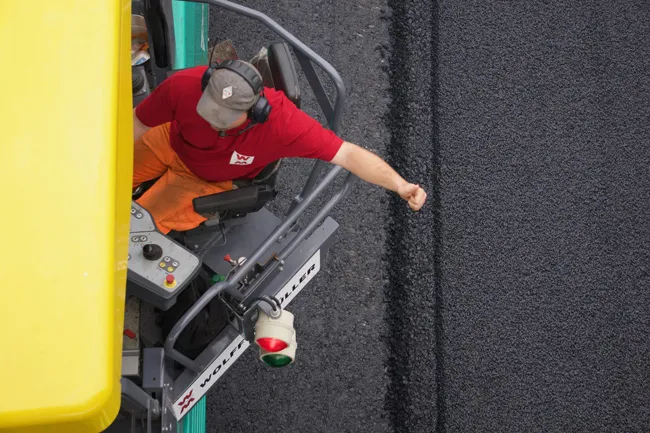AT THE TIME of year it is worth considering how strong the construction market will be towards the end of 2010 and on into 2011. The build-up to the Bauma construction equipment exhibition in Munich, the world's largest exhibition, has helped fuel new product introductions from manufacturers, attracted contractors to visit the event and brought healthy interest to the construction sector as a whole.
February 21, 2012
Read time: 3 mins

AT THE TIME of year it is worth considering how strong the construction market will be towards the end of 2010 and on into 2011. The build-up to the Bauma construction equipment exhibition in Munich, the world's largest exhibition, has helped fuel new product introductions from manufacturers, attracted contractors to visit the event and brought healthy interest to the construction sector as a whole. The question is how this will be sustained throughout rest of the year.
The first half of the year is typically a time for new construction equipment models to be launched and for industry professionals to attend major events such as688 Bauma. The mid-year months can often be quieter due to vacations and the true strength of a recovery will therefore be seen at the end of the third and fourth quarters of 2010.
Governments need to consider budgets carefully. Financial restraints may affect spending at present, but trimming budgets for transport infrastructure as a result will actually hinder economic growth. Investment in infrastructure generally pays dividends, as long as it is planned carefully. Roads and highways still need to be built but the question is how money will be found to pay for their construction. Many of the banks in Europe and the US have been bailed out by governments. It is now time for governments to ensure that banks return the favour by looking to the long term and investing in projects that centre on transport infrastructure. It is no coincidence that two of the world's key growing economies, China and India, have targeted transport infrastructure as a major route for continued future growth. Those complaining of growing competition from Chinese firms would do well to remind the political classes of the need to take note of how China and India are using highway investment as part of their future economic strategies.
An indication of the way forward for developed nations comes from Greece, arguably the most troubled European economy at present.
The economic meltdown has been particularly tough on Greece as its previous government wasted much of its spending power, while there have also been serious allegations of corruption and the country's present administration has to cope with a severely curtailed budget. However, Greece's current massive highway construction programme has been largely funded by road tolling or by investment from the European Community. It is true that toll revenues may have been affected by slightly lower traffic volumes as a result of reduced economic activity due to the recession. But this will not have had a major impact on income in the mid-term and will recover over the long term. And the European funding for the Greek highway construction programme has not been affected by recession.
Whatever happens to the Greek economy and political machine in the coming months, its new highway system will provide a direct road back to economic recovery rather than a cost to an already overburdened state.
The first half of the year is typically a time for new construction equipment models to be launched and for industry professionals to attend major events such as
Governments need to consider budgets carefully. Financial restraints may affect spending at present, but trimming budgets for transport infrastructure as a result will actually hinder economic growth. Investment in infrastructure generally pays dividends, as long as it is planned carefully. Roads and highways still need to be built but the question is how money will be found to pay for their construction. Many of the banks in Europe and the US have been bailed out by governments. It is now time for governments to ensure that banks return the favour by looking to the long term and investing in projects that centre on transport infrastructure. It is no coincidence that two of the world's key growing economies, China and India, have targeted transport infrastructure as a major route for continued future growth. Those complaining of growing competition from Chinese firms would do well to remind the political classes of the need to take note of how China and India are using highway investment as part of their future economic strategies.
An indication of the way forward for developed nations comes from Greece, arguably the most troubled European economy at present.
The economic meltdown has been particularly tough on Greece as its previous government wasted much of its spending power, while there have also been serious allegations of corruption and the country's present administration has to cope with a severely curtailed budget. However, Greece's current massive highway construction programme has been largely funded by road tolling or by investment from the European Community. It is true that toll revenues may have been affected by slightly lower traffic volumes as a result of reduced economic activity due to the recession. But this will not have had a major impact on income in the mid-term and will recover over the long term. And the European funding for the Greek highway construction programme has not been affected by recession.
Whatever happens to the Greek economy and political machine in the coming months, its new highway system will provide a direct road back to economic recovery rather than a cost to an already overburdened state.








